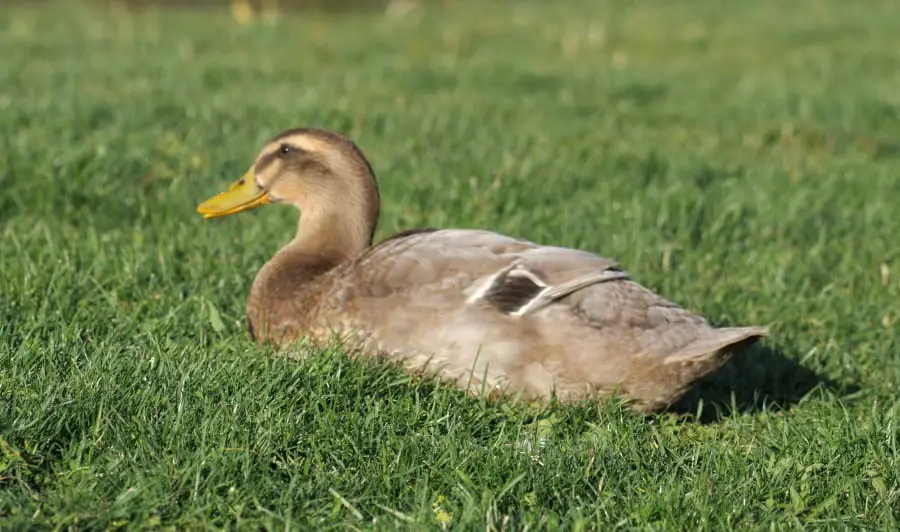
When it comes to having pests in your gardens, few animals can be as scary as snakes. A snake infestation near your lake or river is enough to drive many people into a state of fear. It’s not surprising that homeowners often try to limit snake numbers by finding natural adversaries.
Do ducks help keep snakes away? It all depends on the type of snake you have and the size of your ducks. Ducks can kill and eat small venomous snakes, which can reduce the population. Larger snakes and more dangerous snakes may pose a risk to your ducks.
Many people aren’t aware that snakes and ducks are natural-born enemies, but it’s true. Trying to use this to one’s advantage, though, can prove to be tricky. This guide will give you a quick explanation on what you need to know.
Do Ducks Help Keep Snakes Away?
Ducks might look cute, but they can pack a serious wallop to their enemies. This is especially true of duck breeds that are known for eating snakes, such as Muscovites. Their natural diets can lower snake numbers around you.
Despite their reputation for being friendly, ducks are talented hunters and have amazing instincts. That being said, there’s a limit to how much help ducks can offer. Depending on the snake, you might get a bigger problem by having ducks nearby.
Don’t Snakes Eat Duck Eggs?
This is a common belief that is only partially true. Small snakes don’t eat duck eggs, nor do they attack ducks. It’s actually the larger snakes that tend to be problematic to duck populations.
One of the reasons why ducks can actually worsen a snake problem is the snake’s diet. Most medium to large-sized snakes enjoy eating eggs, especially duck and chicken eggs. Having ducks near these types of snakes can mean more access to snake food, causing an influx of snakes.
Ducks’ eggs alone aren’t the only item of interest for certain snakes, either. Larger snakes like pythons have been known to kill and eat ducks along with their eggs. If you have a large snake problem, it’s not a wise idea to try to deter them with ducks.
How Can You Tell If Your Ducks Will Become Snake Prey?
Size aside, the best way to figure out whether you’re putting your ducks at risk (without putting them at risk) is to take a closer look at your snakes and try to identify them. If it’s a species known for preying on ducks, it’s safe to say you shouldn’t let ducks around them.
Actually getting close to snakes isn’t somethng you should do unless you are adequately prepared to do so and know how to avoid getting bitten by them. You can never be sure whether or not an unidentified snake is venomous, and the antidote might not always be easily available.
If you want to take a look at the snake species around your home, you need to keep a distance from them. Your best bet is to take a photo of the snake with a cellphone and then use that picture to search the species up online.
How Can You Tell If Ducks Will Decrease Your Number Of Snakes?
Generally speaking, ducks are only really good at keeping snake numbers low if the snakes in question are very small. When snakes are large enough to eat duck eggs, they can pose a danger to adult ducks as well.
Obviously, venomous snakes are going to pose an additional risk to your ducks. Thankfully ducks do have some levels of immunity to certain venoms, especially when they’re ingested.
What Kind Of Snakes Can Be Kept At Bay By Ducks?
If you are looking for deterrents for specific snake types, you will have a hard time finding a full list. However, most farmers have noted that ducks appear to be good at deterring snakes from these species:
- Corn Snakes
- Garter Snake
- Copperhead Snakes
Though this is a fairly short list, almost every snake that’s small in size will probably be eaten by ducks. Even larger ones, like water mocassins, can be driven away by ducks if you see them in smaller numbers.
How To Protect Your Ducks From Larger Snakes
Let’s say you have ducks, and you’re beginning to notice that snakes are now preying on their eggs or the actual ducks themselves. At this point, buying more ducks isn’t going to solve your problem. You will need to do something to protect your fowl.
The first thing you should do is ensure that your ducks’ enclosure is snake-proofed and doesn’t have any holes in it. If your ducks are wild, then spilling vinegar near your lake or pond can help deter snakes from coming by to hunt.
If all else fails, buying snake-proof fencing could be a final solution to ensure your ducks don’t end up on a snake’s dinner menu. I recommend this one.
What Are The Best Duck Breeds For Keeping Snakes Away?
Ducks aren’t ever fully domesticated, per se, so they never really lose their hunter instincts. This means that almost any duck breed can be use to deter snakes and similar small pests from your home.
There are certain breeds that are known for their snake-deterring prowess, though. These include the following:
- Muscovy Ducks. These quackless ducks are known for being territorial and for chasing away snakes. They’re excellent pets and can be a wonderful addition to your farm.
- Mallards. They’re loud, they’re aggressive, and they’re talkative. This makes them a perfect match against snakes.
- Indian Runners. These ducks are known for being a great ally when it comes to foraging and hunting. Unlike chickens, they don’t dig up dirt and also don’t make too much noise. They love to hunt snakes!
- Steamer Ducks. Steamer ducks are not exactly pet material, but if you want a duck that will get rid of snakes (and just about anything else), it’s a great breed to have. Steamer ducks are widely known as the most aggressive duck breed in the world, and they can’t stand snakes.
Signs That Ducks Won’t Help Your Snake Problem
It’s no secret that snakes aren’t exactly the nicest kind of critter to come by on your property, and ducks can help keep them away. There are times when handling things on your own (or with the help of Mother Nature) just won’t work.
If any of these signs are true, then your best bet is to hire a professional who can help you reduce the number of snakes on your property.
- Ducks and/or duck eggs have been eaten by snakes. If snakes are large enoiugh to harm your ducks, then trying to solve your pest problem using them won’t work. If anything, it’ll make the matter worse.
- The sheer number of snakes you see is out of control. Every pond and lake will have snakes, but not every pond will look like it’s crawling with them. If your snake numbers are sky-high, it’s a job beyond your DIY abilities.
- The snakes in question are highly venomous, and you’re concerned about your birds’ wellbeing. Though ducks can often eat venomous snakes without issue, there’s always that chance that your ducks could end up getting harmed. If you are concerned about venomous snakes, it’s best to work with professionals.
You’ve tried multiple DIY routes but to no avail. If ducks were a final resort to the snake control issue, then there may be something bigger at play. Talking to professionals might be the only way to get your snake population under control.


